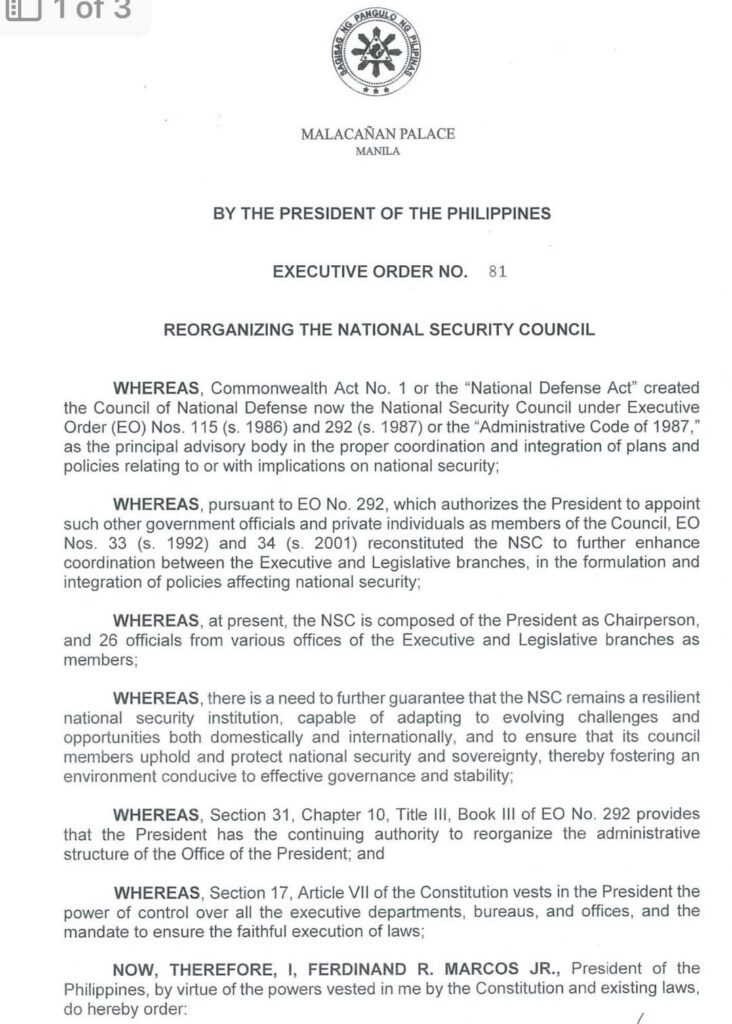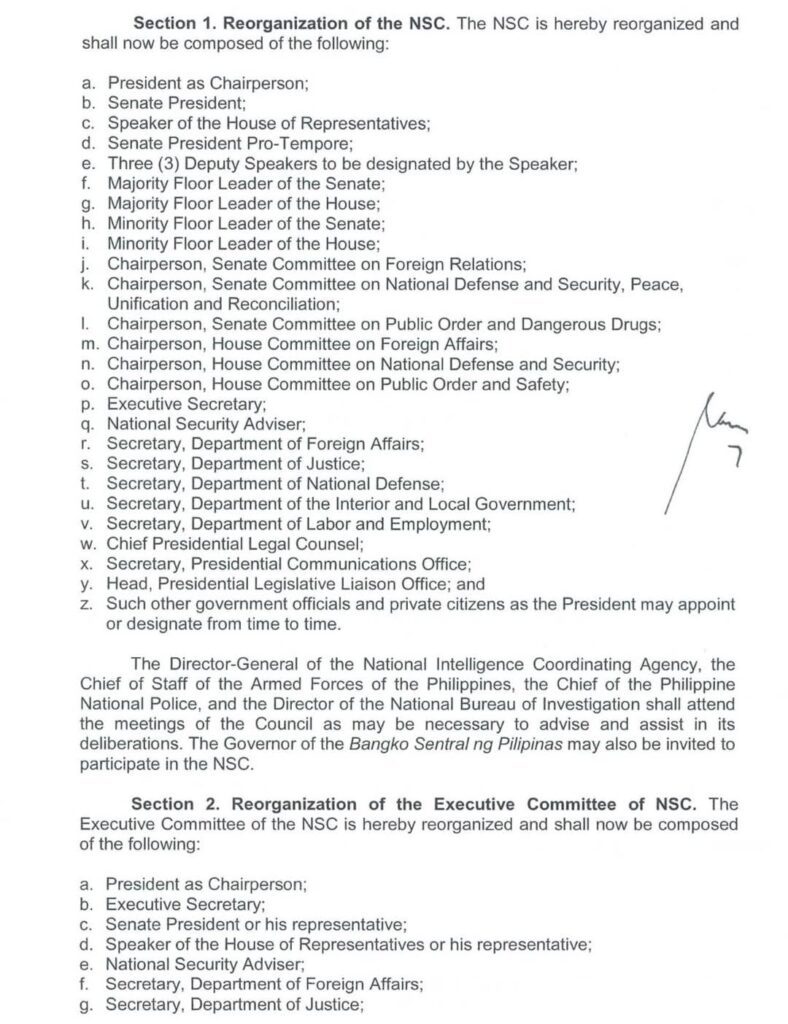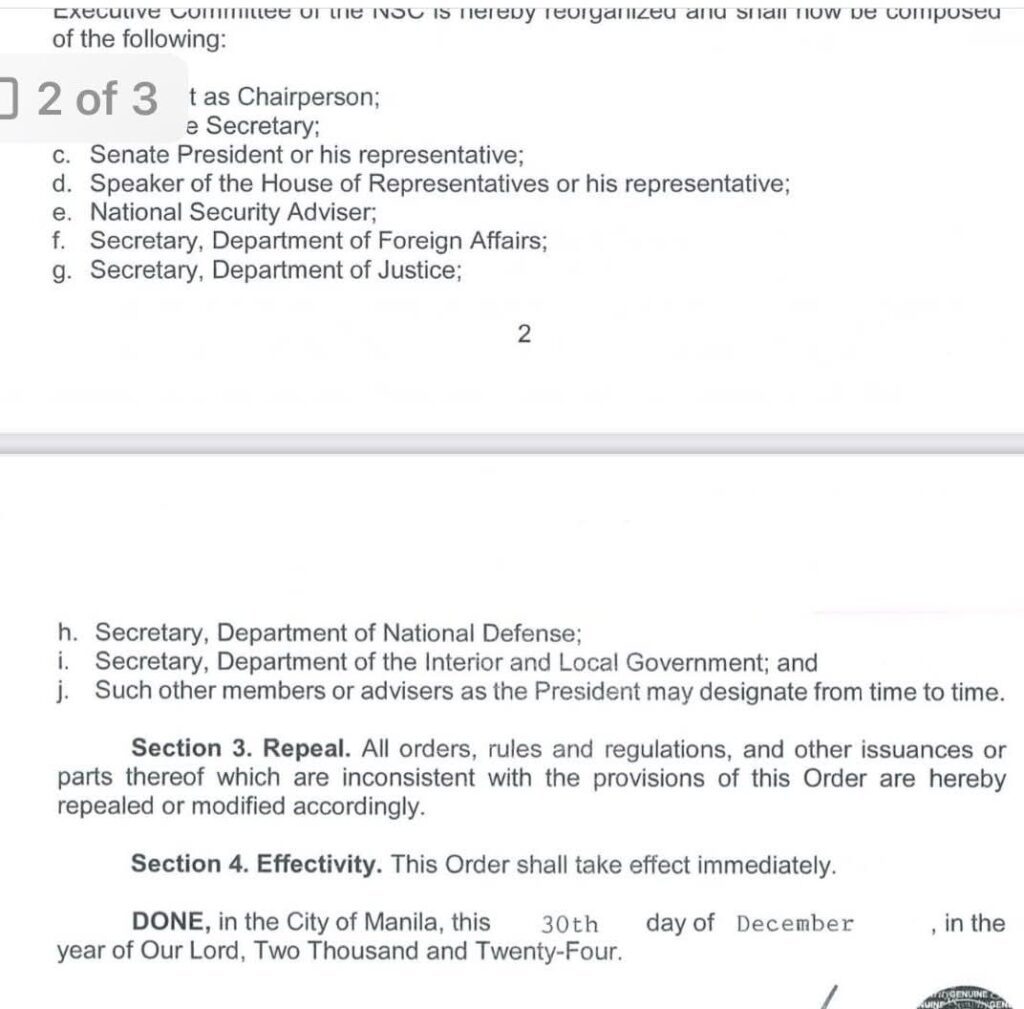THE Philippine Vice President and former Presidents are no longer members of the National Security Council (NSC) following a reorganization ordered by President Ferdinand Marcos Jr. earlier this week. The move aims to ensure the council’s adaptability to evolving domestic and international challenges.
Executive Order No. 81, signed on December 30, 2024, and released on January 3, 2025, underscores the need to maintain the NSC as a “resilient national security institution” capable of responding to emerging threats and opportunities. It also emphasizes the importance of council members upholding national security and sovereignty to foster effective governance and stability.

Updated NSC Composition
Under the reorganization, the NSC will now include:
Chairperson: The President
Legislative Leaders:
Senate President
Speaker of the House of Representatives
Senate President Pro-Tempore
Three Deputy Speakers (designated by the Speaker)
Majority and Minority Floor Leaders from both the Senate and House

Committee Chairpersons:
Senate Committees on Foreign Relations, National Defense, and Public Order
House Committees on Foreign Affairs, National Defense, and Public Order
Executive Officials:
Executive Secretary
National Security Adviser
Secretaries of Foreign Affairs, Justice, National Defense, Interior and Local Government, Labor and Employment
Chief Presidential Legal Counsel
Secretary of the Presidential Communications Office
Head of the Presidential Legislative Liaison Office
Additional Members: Other officials and private citizens as designated by the President.
Key security leaders, such as the Director-General of the National Intelligence Coordinating Agency, Chief of Staff of the Armed Forces of the Philippines, Chief of the Philippine National Police, and Director of the National Bureau of Investigation, will participate in council meetings as needed. The Bangko Sentral ng Pilipinas Governor may also be invited.
Executive Committee Composition
The NSC Executive Committee has also been reorganized and now includes:
Chairperson: The President
Executive Secretary
Senate President or representative
House Speaker or representative
National Security Adviser
Secretaries of Foreign Affairs, Justice, National Defense, and Interior and Local Government.

Additional members or advisers designated by the President.
This streamlined structure reflects the administration’s intent to create a more focused and responsive council capable of addressing modern security challenges effectively.

